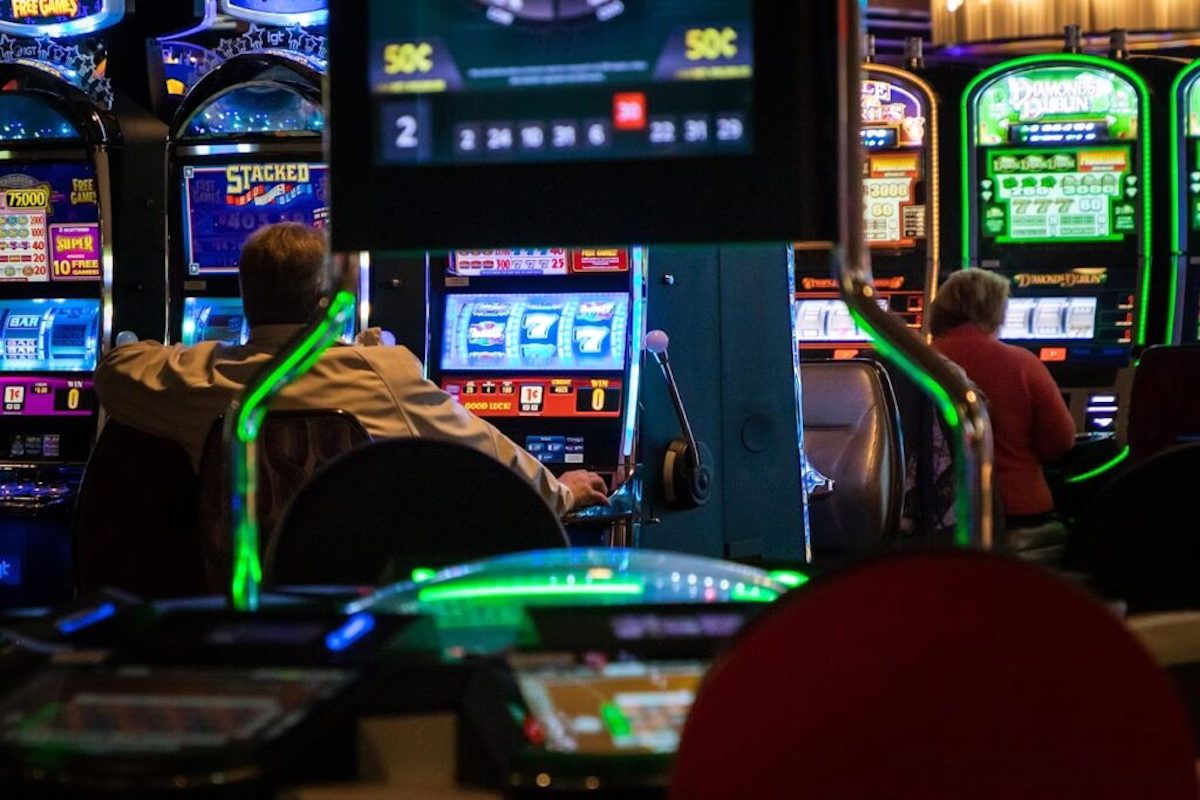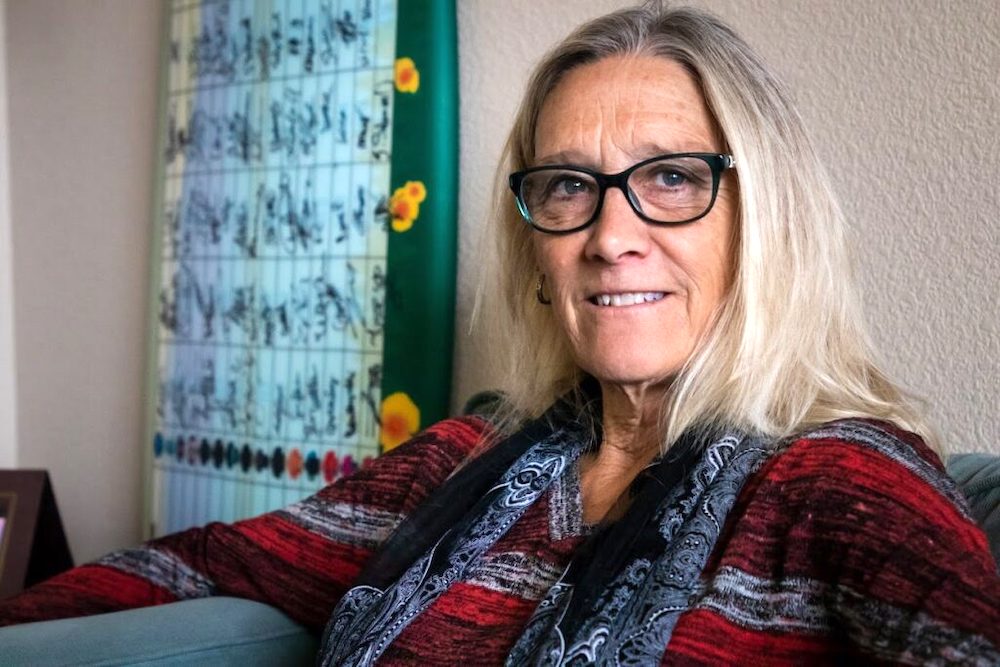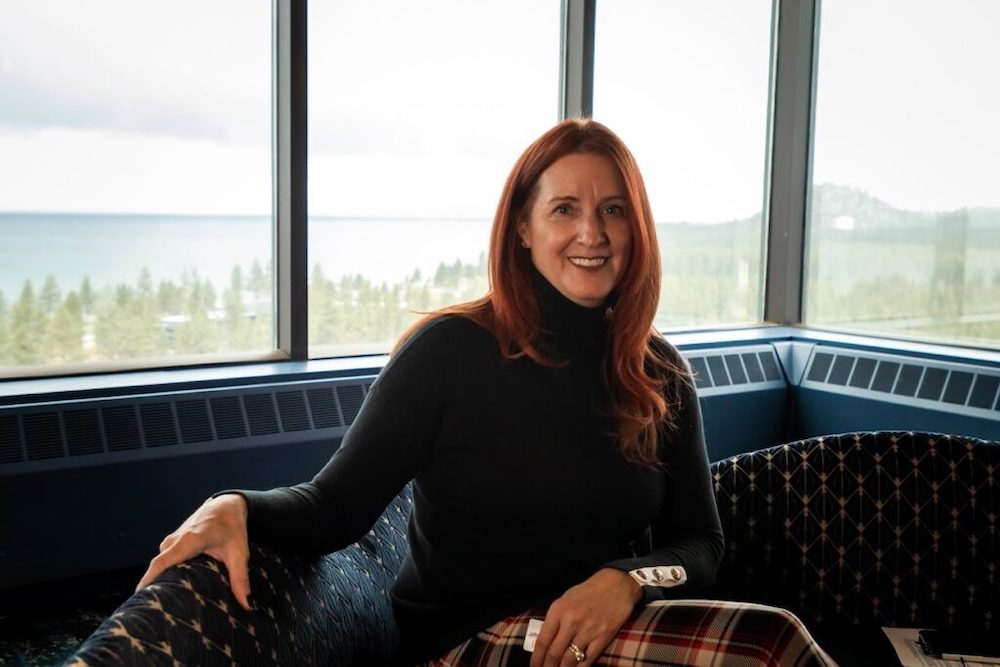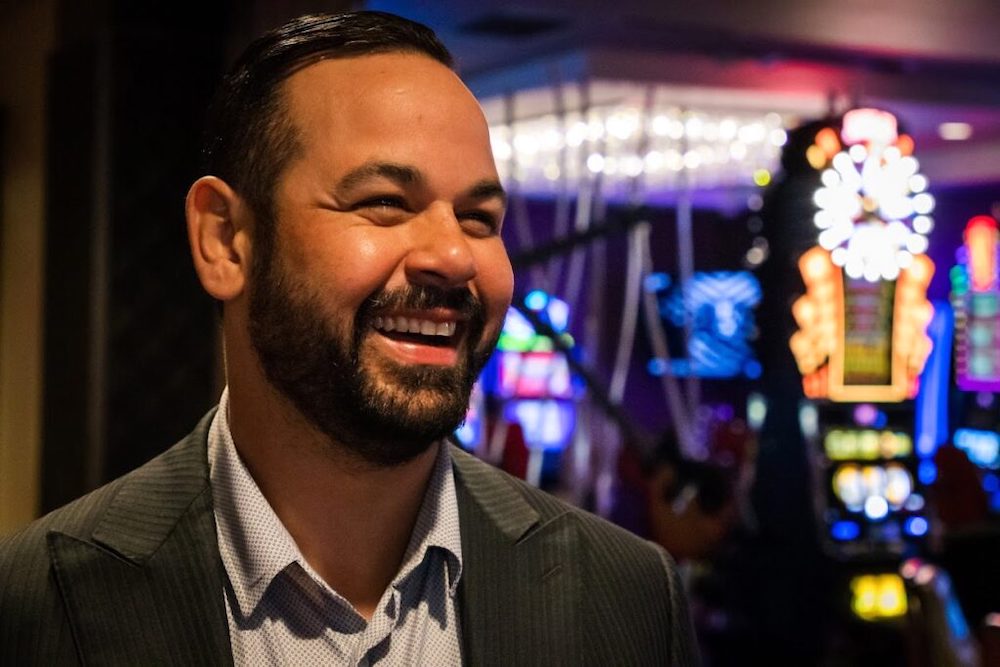The $80 million Tahoe South Events Center is seen under construction near MontBleu Resort and across from Hard Rock Lake Tahoe on Oct. 11, 2021. The 132,000-square facility is expected to open in late 2022. Photo: Tim Lenard / The Nevada Independent
 The casino floor at Hard Rock Lake Tahoe is seen on Monday, Oct. 11, 2021. Photo: Tim Lenard / The Nevada Independent
The casino floor at Hard Rock Lake Tahoe is seen on Monday, Oct. 11, 2021. Photo: Tim Lenard / The Nevada Independent
 Carol Chaplin, CEO of the Lake Tahoe Visitors Authority. Photo: Tim Lenard / The Nevada Independent
Carol Chaplin, CEO of the Lake Tahoe Visitors Authority. Photo: Tim Lenard / The Nevada Independent
 Harveys and Harrah's Lake Tahoe General Manager Karie Hall. Photo: Tim Lenard / The Nevada Independent
Harveys and Harrah's Lake Tahoe General Manager Karie Hall. Photo: Tim Lenard / The Nevada Independent
 Eric Barbaro executive director of marketing for Hard Rock Lake Tahoe. Photo: Tim Lenard / The Nevada Independent
Eric Barbaro executive director of marketing for Hard Rock Lake Tahoe. Photo: Tim Lenard / The Nevada Independent